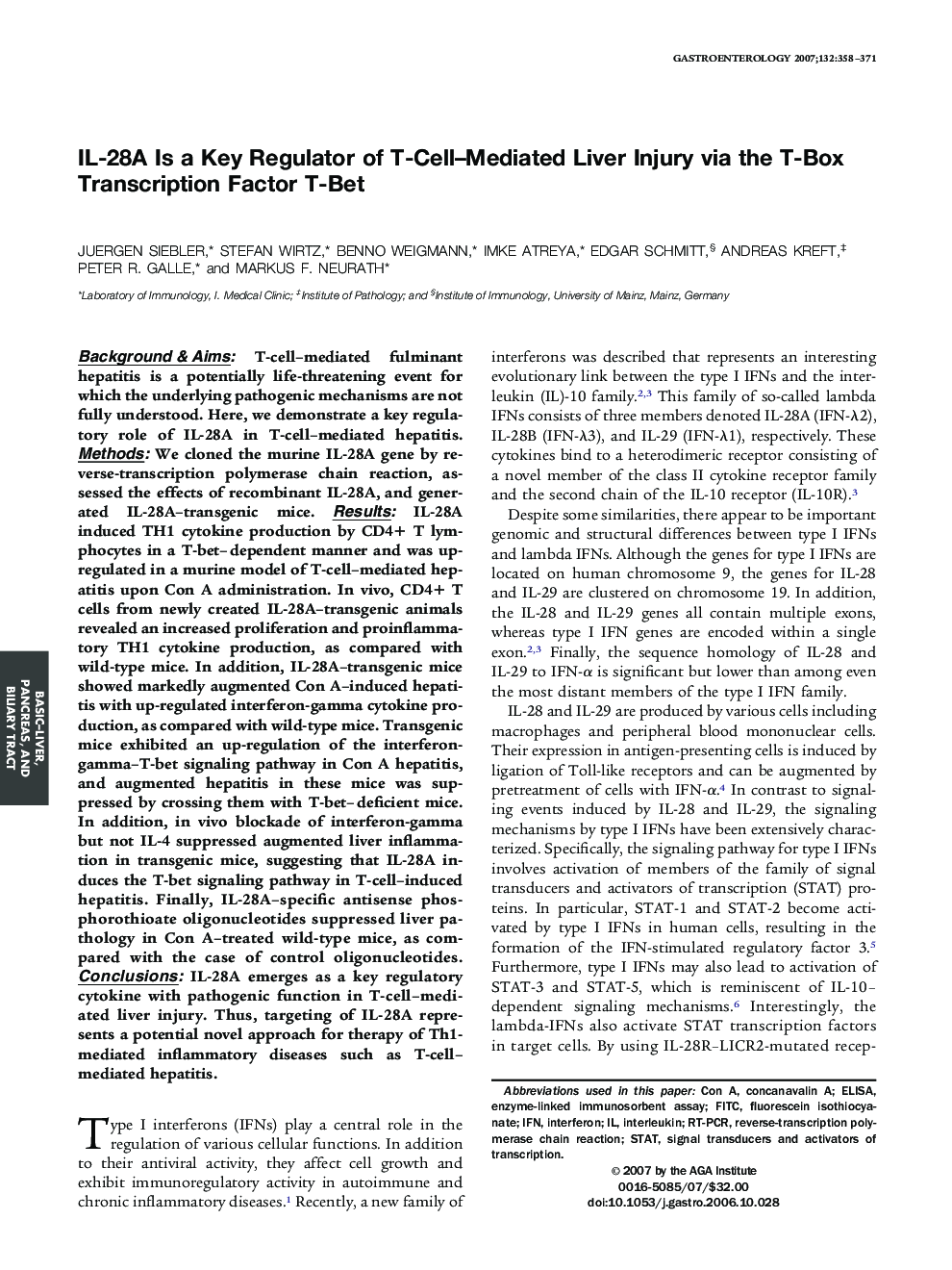| Article ID | Journal | Published Year | Pages | File Type |
|---|---|---|---|---|
| 3296331 | Gastroenterology | 2007 | 14 Pages |
Background & Aims: T-cell–mediated fulminant hepatitis is a potentially life-threatening event for which the underlying pathogenic mechanisms are not fully understood. Here, we demonstrate a key regulatory role of IL-28A in T-cell–mediated hepatitis. Methods: We cloned the murine IL-28A gene by reverse-transcription polymerase chain reaction, assessed the effects of recombinant IL-28A, and generated IL-28A–transgenic mice. Results: IL-28A induced TH1 cytokine production by CD4+ T lymphocytes in a T-bet–dependent manner and was up-regulated in a murine model of T-cell–mediated hepatitis upon Con A administration. In vivo, CD4+ T cells from newly created IL-28A–transgenic animals revealed an increased proliferation and proinflammatory TH1 cytokine production, as compared with wild-type mice. In addition, IL-28A–transgenic mice showed markedly augmented Con A–induced hepatitis with up-regulated interferon-gamma cytokine production, as compared with wild-type mice. Transgenic mice exhibited an up-regulation of the interferon-gamma–T-bet signaling pathway in Con A hepatitis, and augmented hepatitis in these mice was suppressed by crossing them with T-bet–deficient mice. In addition, in vivo blockade of interferon-gamma but not IL-4 suppressed augmented liver inflammation in transgenic mice, suggesting that IL-28A induces the T-bet signaling pathway in T-cell–induced hepatitis. Finally, IL-28A–specific antisense phosphorothioate oligonucleotides suppressed liver pathology in Con A–treated wild-type mice, as compared with the case of control oligonucleotides. Conclusions: IL-28A emerges as a key regulatory cytokine with pathogenic function in T-cell–mediated liver injury. Thus, targeting of IL-28A represents a potential novel approach for therapy of Th1-mediated inflammatory diseases such as T-cell–mediated hepatitis.
